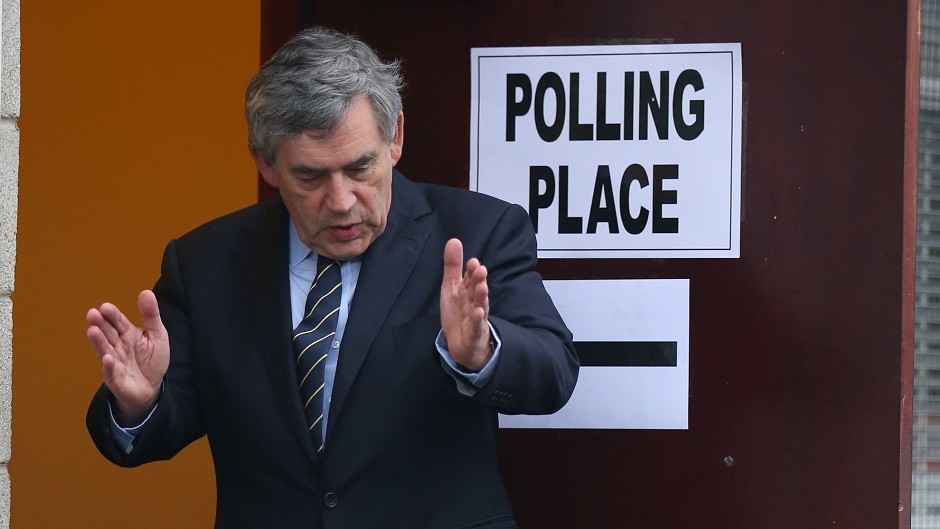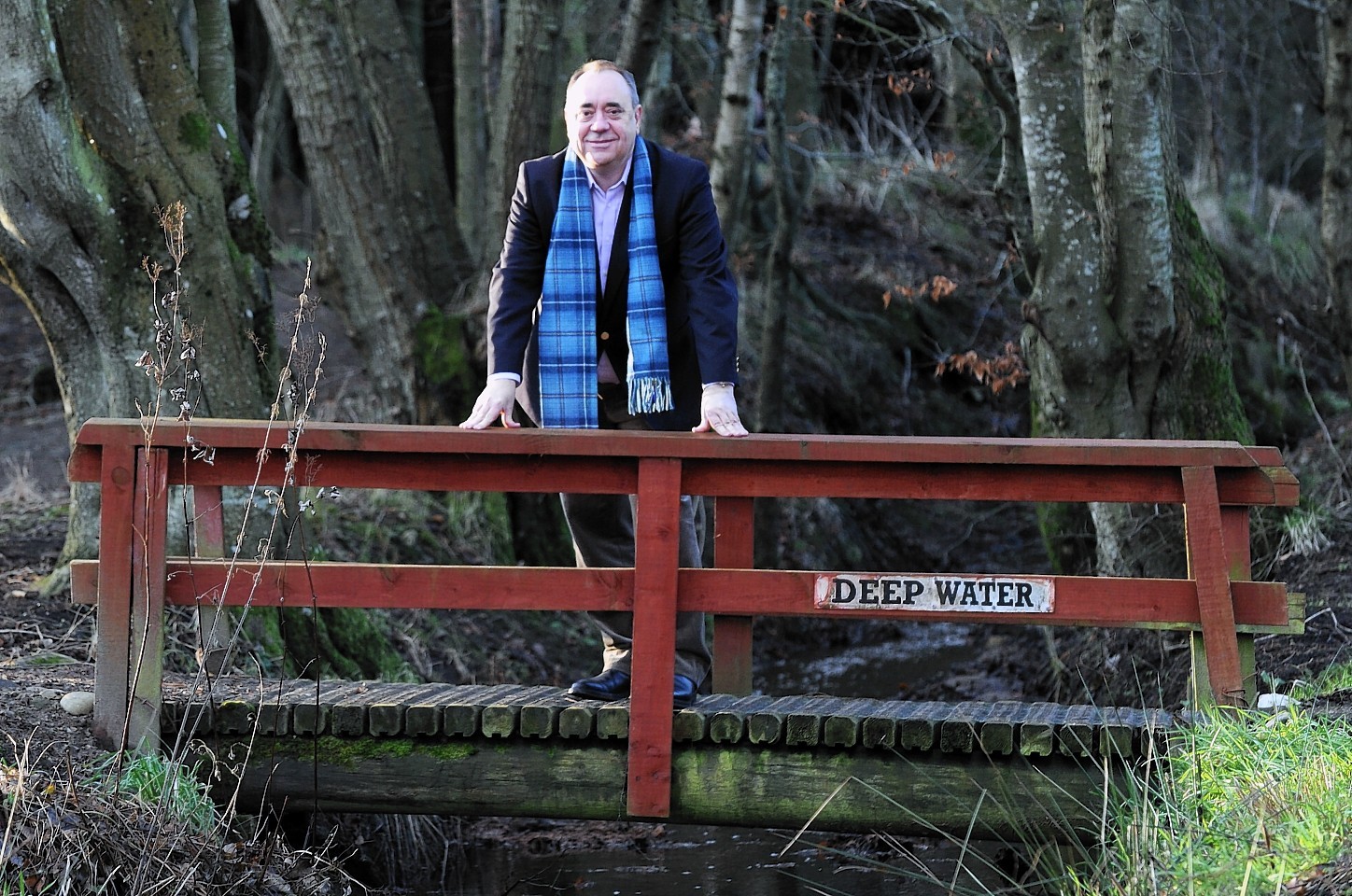Like a boxer who does not see a knockout punch coming, Alex Salmond didn’t anticipate the uppercut from Gordon Brown which knocked the Yes campaign out of the ring.
The master strategist, who spent years faultlessly guiding the SNP from losers to spectacular winners, was wrong-footed by a powerful late intervention from the former Labour prime minister and his “Vow” of dramatic new powers for Scotland if it stayed in the UK.
“At the last minute an offer was made,” said Mr Salmond, who still appeared deflated at recalling those fateful last few days of the campaign.
He spread his arms wide, shrugged his shoulders and revealed his inner feelings about the Brown effect.
“I had discounted it on the basis of the people who had made the offer – Cameron, Clegg, Milliband – had no credibility.
“An offer without credibility isn’t worth much at all.
“The problem was Gordon Brown, I didn’t anticipate him coming in.”
The former first minister’s tactics had taken Mr Brown into account, but not in a significant way.
Mr Salmond assumed he would enter the fray at some point, but not as the main man who saved the No campaign from going under.
“I didn’t think he’d take over the campaign,” said Mr Salmond, who also seemed genuinely confused about a certain aspect of Mr Brown’s persona.
“For one reason or another – and a reason I’ve not been able to quite understand – Gordon has credibility. Therefore, a vow from Gordon was more influential than a pledge from Clegg. ”
Mr Salmond paused for thought and added, with obvious regret at a missed opportunity, that if Mr Brown’s counter-attack had been delayed for much longer “it would have been too late for them”.
“We would have had momentum and it would have been difficult for them to stitch it together. But 10 days before was an issue.”
With hindsight, Mr Salmond conceded that this is what the campaign turned on. But, in a flash, the man whose political comebacks are legendary, was on the offensive again.
After almost wincing at the recollection of Mr Brown’s devastating effect on him, his demeanour changed – he was bullish and on the attack again. He was bouncing back aggressively in true Salmond style.
“You can win a battle, but lose a war,” he announced.
“And the nature of what they did allowed them to win the referendum, but they are certainly going to lose the peace because of the offer they made.
“They are now in a position where either they redeem the offer – this devo to the max – or, alternatively, they pay the consequences.”
The ebullient, confident political leader was on a roll.
“Right now, they are paying the consequences. You can take a quick trick but still lose the game and I think they took a quick trick. Unless, of course, they redeem what they promised, but there doesn’t seem to be much sign of that right now.
“I knew The Vow was an issue, it gave them a momentum.
“The Vow was decisive. The face that someone with credibility was delivering it was an added bonus. It was designed for the 10% of people who were moving to Yes – the swing voters – who could be persuaded that they could still get progress for Scotland without voting Yes.
“It’s these people, incidentally, who are now pretty fed up with the Westminster parties. They are not satisfied that what they were promised is about to be delivered or, alternatively, want to make sure it will be. That’s the dynamic.”
Read more from Alex Salmond’s exclusive interview:
“I’m not interested in another referendum”
VIDEO: Alex Salmond says Yes would have won if Alistair Darling had stayed in charge

